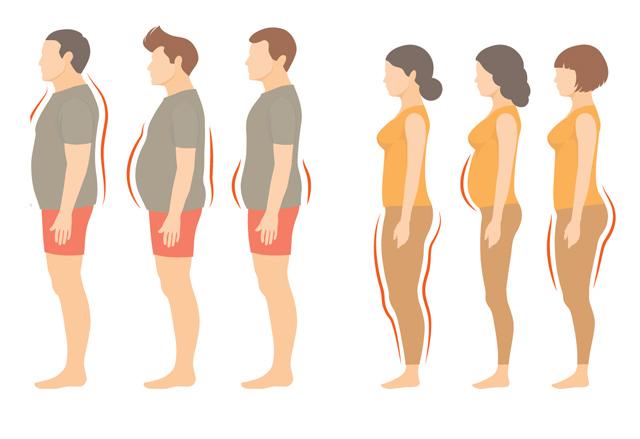You are here
Cycle savvy & smart nutrition
By Tara Ensour , Family Flavours - Apr 14,2024 - Last updated at Apr 14,2024

Photo courtesy of Family Flavours magazine
By Tara Ensour
Nutritionist
Nutrition and menstrual health Proper nutrition is very important for menstrual health and regularity. It is therefore important for a woman to understand the nutritional needs of her body to reach optimal health and help control unwanted symptoms.
Menstrual Phases (Days 1 - 5) This phase is typically from day one of menstruation.
Here, the uterine lining sheds, resulting in bleeding.
Oestrogen and progesterone are usually low during this initial stage. During the first few days, foods should be high in protein, fibre, healthy fats and minerals.
Follicular phase (Days 1 - 13) This phase begins on the first day of menstruation and lasts until ovulation. During this time, the follicle-stimulating hormone stimulates the development of follicles in the ovaries, one of which will release an egg during ovulation.
Here, oestrogen levels rise, therefore, during these days, magnesium-rich foods are encouraged as magnesium levels are typically at their lowest. Magnesium-rich
foods include spinach and nuts. Energy levels are often high at this stage and some women find that they enjoy exercising during their follicular phase.
Ovulation (Day 14) Ovulation usually occurs around the middle of the menstrual cycle (around day 14 in a 28-day cycle). This is when the matured egg is released from the ovary and is available for fertilisation by sperm.
Oestrogen, here, is at its peak during ovulation. Highfibre foods can help reduce oestrogen levels and get back hormonal balance. If you are trying to have a baby, proper nutrition can help increase your chances of pregnancy during this phase. Increase your intake of folic acid and Omega-3 fatty acids. Good foods to eat during this stage are berries, eggplant, spinach, red lentils, salmon, tuna, corn and tomatoes.
Luteal Phase (Days 15 - 28) After ovulation, the egg transforms into the corpus luteum, which produces progesterone to prepare the uterus for possible pregnancy. If pregnancy doesn’t occur, the corpus luteum breaks down, leading to a decrease in progesterone and the start of a new menstrual cycle.
During this phase, focus on foods high in magnesium and healthy fats. This includes white fish, chickpeas and brown rice.
PMS
To help alleviate premenstrual syndrome (PMS) symptoms, increase your intake of the following vitamins and minerals:
1. Calcium, through foods like nuts, dairy and green leafy vegetables
2. Vitamin B6, through foods like chicken, sea bass and avocado
3. Magnesium, through foods like spinach, nuts and whole meal bread
4. Omega-3 fatty acids, through foods like salmon, sardines and anchovies
5. Vitamin E, through foods like nuts and seeds
6. Fibre, through foods like fruit, unsalted nuts and pulses
Protein and Iron
When you are in your cycle, it is important to maintain your protein intake. Chicken and meat are not only good protein sources, but also high in iron.
Iron is a mineral of many functions within the body. It is found in red blood cells in your blood, making it an essential mineral to replenish during your cycle, as you lose iron-rich blood.
If blood loss is high and the iron loss is not replenished through sufficient iron intake, this causes a decrease in iron stores which then leads to overall tiredness and a reduced ability to focus.
If dietary intake of iron is not sufficient, supplementation may be required. Liaise closely with your healthcare professional before starting any iron supplements.
Calcium Another important mineral to focus on while in your menstrual cycle is calcium. Calcium is important for
healthy bones and muscles. During your menstrual cycle, if calcium intake is not sufficient, bone loss can occur because of the decrease in oestrogen levels. Insufficient calcium intake can cause cramps and PMS symptoms.
What foods to avoid
Try to avoid these three items during your cycle:
Salt: Salt can increase water retention and uncomfortable premenstrual syndrome symptoms like fatigue and bloating Caffeine: Caffeine increases cortisol, the stress hormone.
When you’re in your menstrual cycle, it is best to keep cortisol levels reduced due to the effect it has on misbalancing hormones and reducing the absorption of some nutrients
Alcohol: Alcohol can increase inflammation and worsen premenstrual syndrome symptoms. It also can affect the absorption of some nutrients, like magnesium
Tara’s top tip
During menstruation, it is normal to crave highly processed snacks, comfort foods, simple sugars and carbohydrate-rich food. It is completely fine to enjoy these foods and it is even encouraged that you listen to your body and what it needs during this physically and emotionally stressful time.
However, try to include highfibre and complex carbohydrates. These will help keep your energy levels and mood stable. Examples of high-fibre carbohydrates are fruits, vegetables and legumes.
Complex carbohydrates include wholegrains and oats.
Reprinted with permission from Family Flavours magazine
Related Articles
By Ayah MuradClinical DieticianMost of us grew up eating meat and animal products practically every day so many of us cannot imagine a day w
Clinical Dietician Body shape categorisation (apple, pear and so on) has left many of us focused on our body shape.














